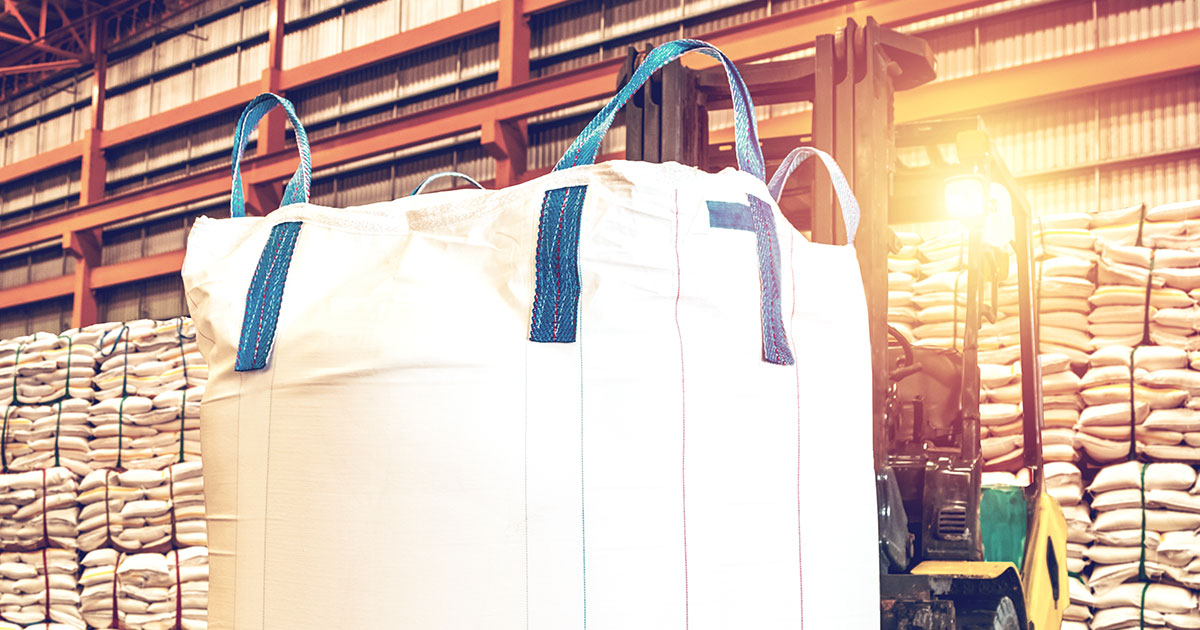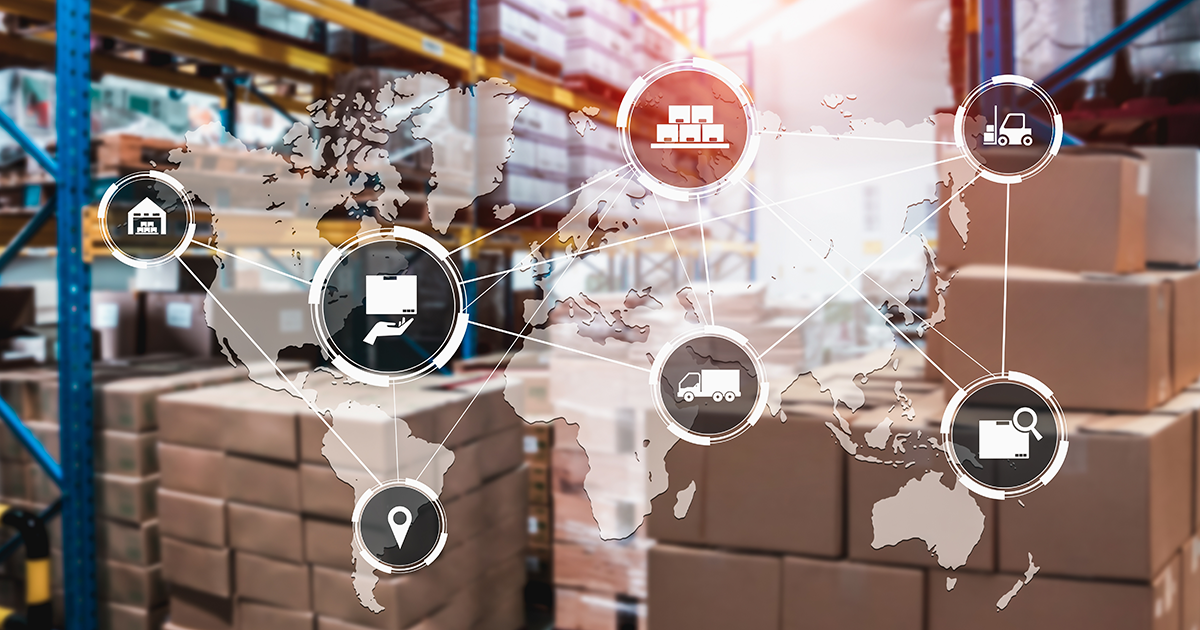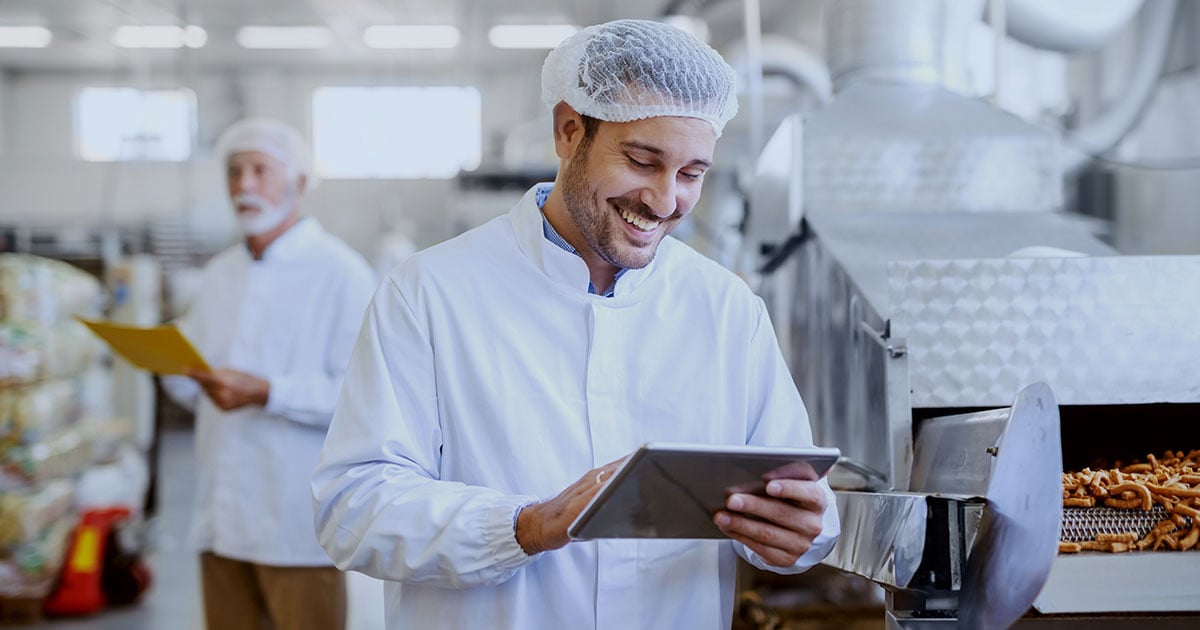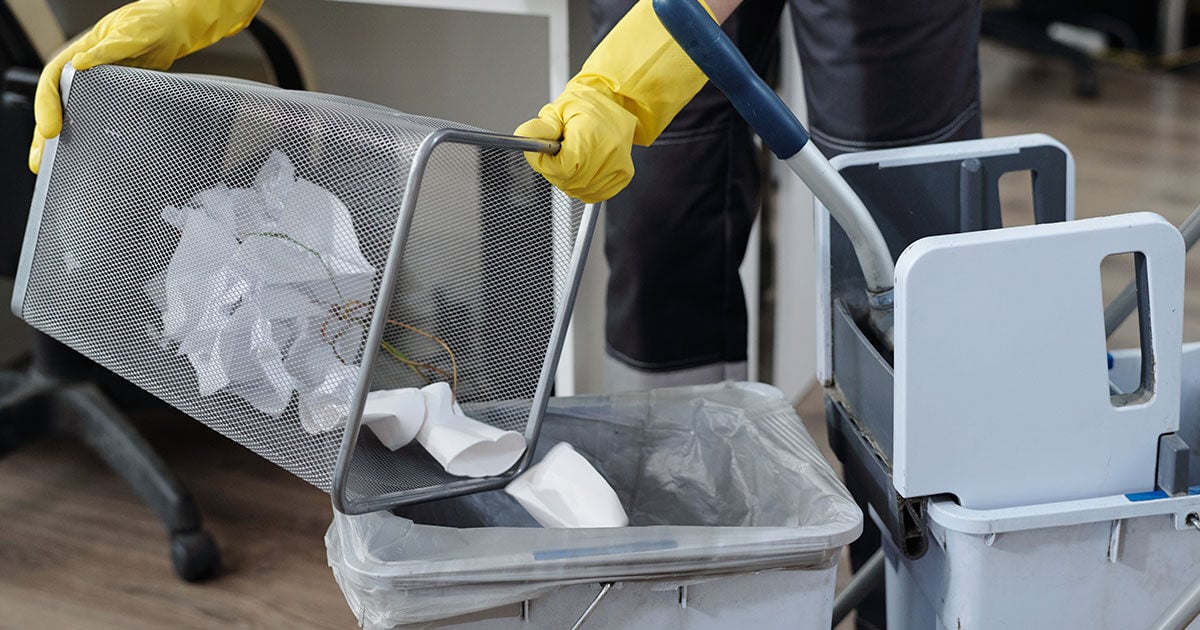6 min read
Packaging Industry Trends: What to Expect in 2024
According to a recent report by Benchmark International1, the global packaging market is forecasted to hit $1.05 trillion in 2024, a whopping 14.5%...
2 min read
 Allyson Stewart
:
April 16, 2025
Allyson Stewart
:
April 16, 2025

Have you heard of the packaging term FIBC, bulk bag, or woven bag, but not sure what they are? You are not alone. FIBCs, or Flexible Intermediate Bulk Containers, may be new to you, but they have been around for over 60 years. They’ve made a name for themselves as a sustainable and cost-effective solution to packaging, storing and transporting certain types of goods.
FIBCs are woven, adaptable containers created from 100% polypropylene or polyester. Their indelible and sift-proof properties make them perfect for use with granular products like dry chemicals, resins, powders, sand, fiberglass, and even food grade goods like whey protein powders and animal feed.
FIBCs are made using resins that are softened and cut into tapes, or threads. The tapes are woven into fabric typically on circular looms. The fabric is available in different weights and is sewn together under quality-controlled supervision.
Completely customizable, FIBCs are made in a range of sizes, strengths, colors, and types depending on the use. Though different products require various strengths of FIBCs, some heavy-duty bulk bags can hold up to 8,000 pounds of product, while the average FIBC holds about 2,200 pounds.
FIBCs are used to safely package, store and transport loose, granular products like sand and powders. They can be used to replace large, corrugated boxes and gaylords to store and transport products, sometimes without the use of a pallet, with the added benefit of flexibility, adjusting for different packaging processes and space constraints.
Additionally, products in bulk bags can be easily discharged into secondary containers- like hoppers- using “stop bottom” technology that can be manually opened to empty the product into smaller containers for easy packaging.
Because of their woven technology, FIBCs can safely handle corrosives, food grade products, and combustible products. This makes FIBCs effective for use in various industries, like food processing, chemical compounding, and resin-based plastic manufacturing.




Learn how FIBCs might benefit your packaging business with BradyPLUS. Contact us today to get started.

6 min read
According to a recent report by Benchmark International1, the global packaging market is forecasted to hit $1.05 trillion in 2024, a whopping 14.5%...

7 min read
Food-related illnesses are on the rise, with pathogens lurking in floor drains, ventilation systems, and aging fixtures of packer and processor...

14 min read
Selecting the right trash bag may seem like a minor decision, but it often presents unexpected challenges that can impact your facility’s...